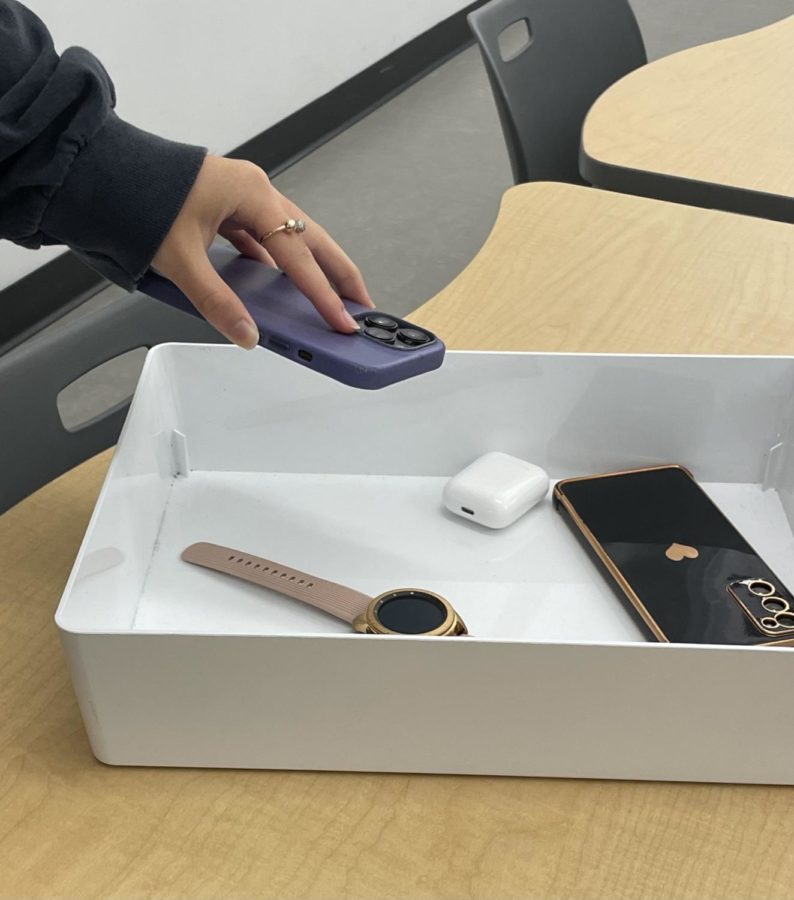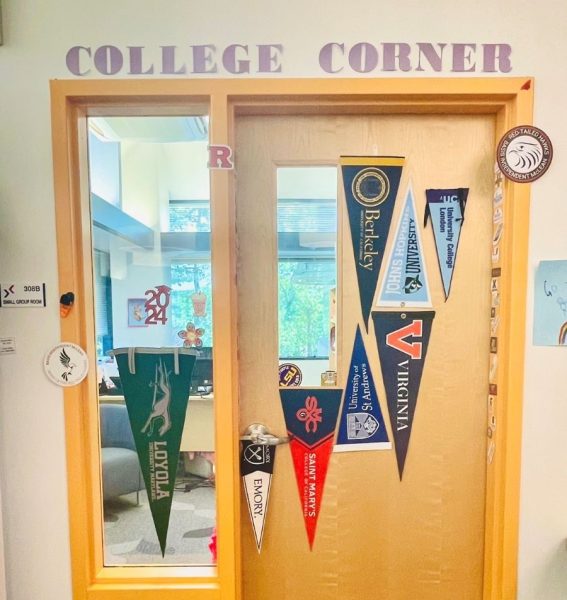What do you mean “No Phones in the Hallway”?
With the new 2022-2023 school year in full force, many students are excited to get back to class, finally returning to a sense of “normal” after nearly two years of pandemic-related changes. Many BIM students were shocked to learn on Orientation Day that the school would be again enforcing what the School Guidebook refers to as the “Phones, Laptops, and Other Electronic Devices” Policy. What is the old policy? How will it be enforced this school year?
The School Guidebook states that for middle schoolers, “Cell phones and smart watches should be turned off and kept in the student’s locker or backpack until the end of the day” (page 29). High schoolers, “are permitted to use their electronic devices, for academic purposes, in the Reading Room and High School Lounge area” (pages 29-30). In addition, the policy specifically addresses phone, tablet, and laptop use in classes: “In class, students must have permission from their teachers to utilize their electronic devices. Students are prohibited from using their cell phones and smart watches in the hallway during transitional periods” (page 30). The language in the Guidebook left many concerned and confused on how the policy would be enforced during the school day.
“We’re mainly trying to not have the phones in the hallways,” Mr. Shorbe told this reporter in a short interview. “We want to minimize inappropriate use,” Mr. Wright echoed similar sentiments in another interview conducted by this reporter, stating that the High School was already doing well with phones during class and in the hallways and the new policy was just building on that respect. Mr. Wright also stated that the most significant change for high school students concerns phone use in the hallways. He emphasized that the language used in the Guidebook was “only for reference and clarification” for the high school.
When asked why the policy was being enforced once again in the new year, Mr. Wright stated that middle school had struggled with the policy last year and was hoping that the high schoolers could serve as “model students” for the middle schoolers. When asked the same question, Mr. Shorbe stated that the policy was mainly preventionary, saying “these kinds of things [cyber bullying] can get out quickly.”
The BIM Bulletin also interviewed Ms. May to see how teachers were feeling about the policy among high school and middle school. In her classroom, students in high school are allowed to use their phones after asking her for permission during digital exercises like Kahoot and Quizizz. In middle school, she doesn’t allow phones in her classroom at all. “[The policy is] good for the school. Students get easily distracted by phones and it’s best to limit exposure,” she said, emphasizing that it is a normal policy found among most schools. Mr. Shorbe echoed similar remarks as well, calling it a “Common Sense” policy and mentioning that he’s followed stricter rules in the past.
Many students have mixed reviews. An 11th grader anonymously told the BIM Bulletin: “I feel that the no phones in class unless told otherwise rule is necessary for students to be paying attention and is kind of a no brainer. Personally, I feel that the no phones in the hallway rule is kind of unnecessary, but I can see why the admin introduced it.” Another 12th grader echoed similar sentiments, stating: “My instinct is that this policy is in place to make this school more of a social atmosphere. However, in 2022 I would say that phones assist more in social interaction than hurt.” A 10th grade student stated it was “an inefficient use of our principal’s time” after having their own phone taken away in the halls.
In the end, the opinions on phone use in our school are mixed. Some agree that the policy is extreme but was needed to an extent. Others argue it’s not enough, and still others think it shouldn’t exist at all. The policy is not going away anytime soon and students remain worried in regards to it. “It just comes down to being respectful of teachers’ time and effort and planning.” Ms. May reiterates, “You shouldn’t be on your phone during class.”
Paloma is an enthusiastic reporter who specializes in environmental and climate studies. Her focus revolves mainly around student interests and the planet,...








